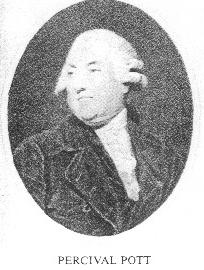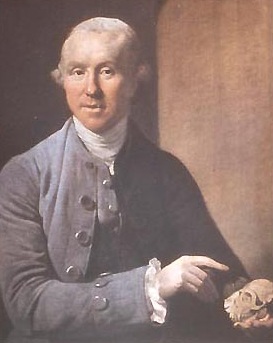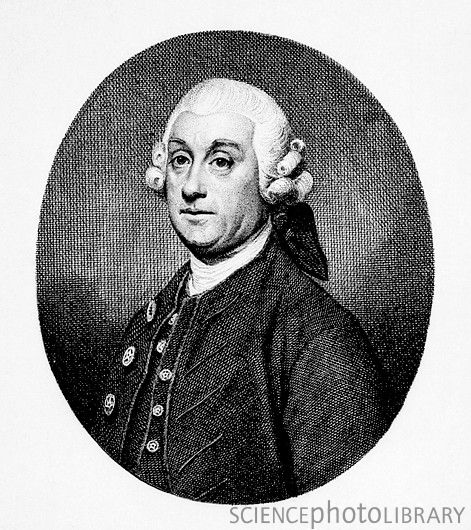<Back to Index>
- Surgeon Percivall Pott, 1714
PAGE SPONSOR



Sir Percivall Pott (6 January 1714 – 22 December 1788, London, England) was an English surgeon, one of the founders of orthopedy, and the first scientist to demonstrate that a cancer may be caused by an environmental carcinogen.
He served his apprenticeship with Edward Nourse, assistant surgeon to St Bartholomew's Hospital, and in 1736 was admitted to the Barbers' Company and licensed to practise. He became assistant surgeon to St Bartholomew's in 1744 and full surgeon from 1749 till 1787.
As the first surgeon of his day in England, excelling even his pupil, John Hunter, on the practical side, Pott introduced various important innovations in procedure, doing much to abolish the extensive use of escharotics and the cautery that was prevalent when he began his career.
In 1756, Pott sustained a broken leg after a fall from his horse. It is often assumed that his injury was the same one that later came to be known as Pott's fracture, but in reality Pott's broken leg was a much more serious compound fracture of the femur. As he lay in the mud and muck, he sent a servant to buy a door from a nearby construction site, then had himself placed on the door and taken home. Surgeons cleaned the wound and discussed amputation, an operation which at the time had a very high rate of failure (as it often led to sepsis and death), but Pott prevailed on them to splint the leg and he ultimately recovered completely. In 1768, Pott published Some Few Remarks upon Fractures and Dislocations. The book was translated into French and Italian and had a far - reaching influence in Britain and France. His name was written in the annals of medicine, by first describing arthritic tuberculosis of the spine (Pott's disease). He gave an excellent clinical description in his Remarks on that Kind of Palsy of the Lower Limbs. Among his other writings the most noteworthy are A Treatise on Ruptures (1756), and Chirurgical Observations.
In 1775, Pott found an association between exposure to soot and a high incidence of scrotal cancer (later found to be squamous cell carcinoma) in chimney sweeps. This was the first occupational link to cancer, and Pott was the first person to demonstrate that a malignancy could be caused by an environmental carcinogen. Pott's early investigations contributed to the science of epidemiology and the Chimney Sweeper's Act of 1788.
In 1765 he was elected Master of the Company of Surgeons, the forerunner of the Royal College of Surgeons.